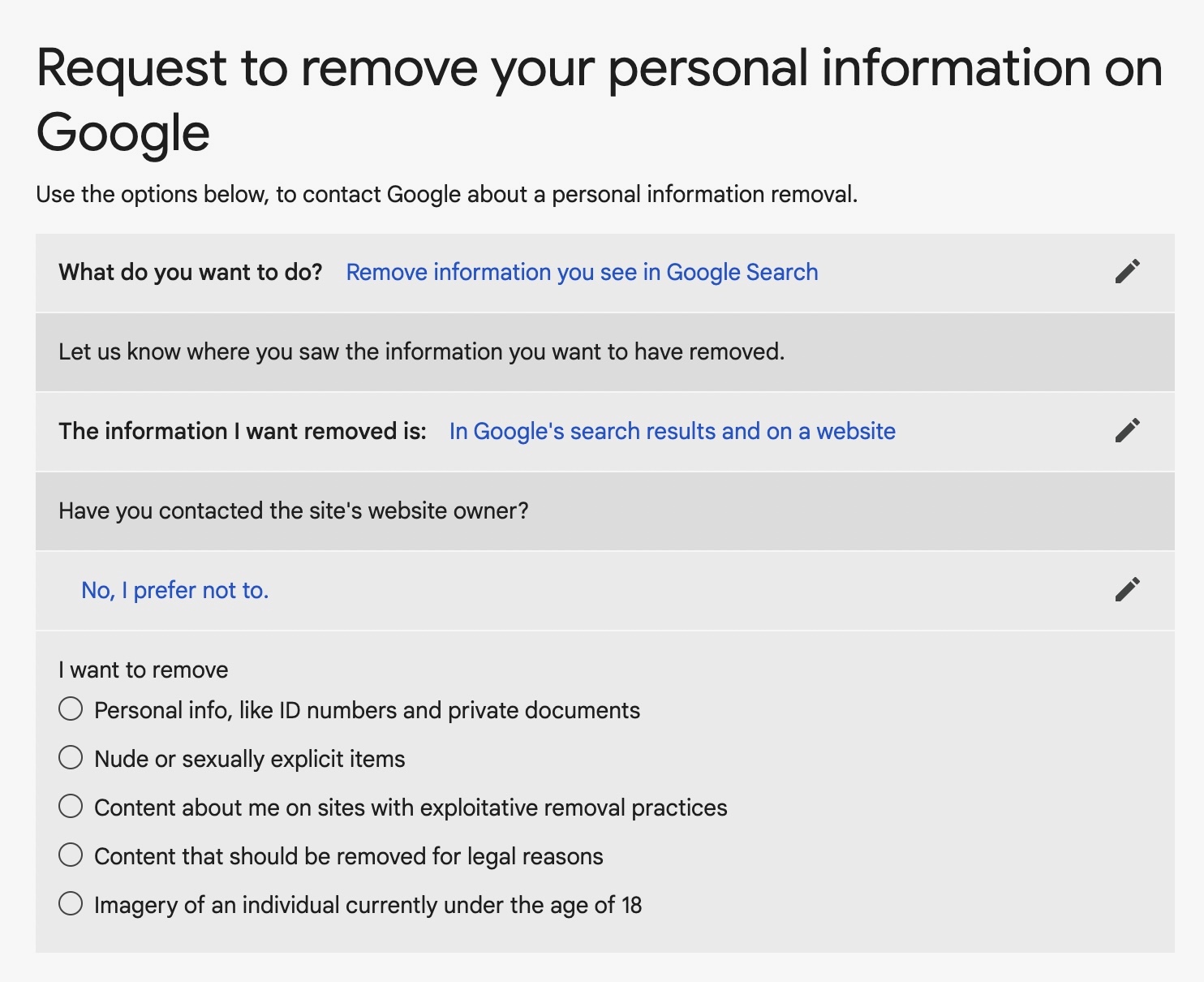Once something is on the internet, it’s almost impossible to take it down. But Google now makes it easier for anyone to request the removal of their personal information from Google’s own search results.
Google has been broadly against a global “right to be forgotten,” a facet of European law that allows EU citizens to demand that companies, including tech giants, delete personal data that is stored about them. But that hasn’t stopped Google from giving users the tools to limit what information it collects as a company, as well as tools to let children and young adults request the removal of their photos from Google’s image search results.
Now with its new search results removal request feature, you can ask Google to remove personally identifiable information about yourself (or someone you represent) from its search results, like a phone number, email address or your home address, and other sensitive information that could be used to break into your online accounts, like login credentials. Google said this can help victims of doxxing, where information about a person is published online without their consent, often with malicious intent.

Google lets you request to remove your personal information from its search results. Image: TechCrunch
To request to remove your search results, first note what Google needs from you in order to process the removal request. Google explains what kinds of personal information it will remove, such as confidential government ID identification numbers, bank account numbers, images of ID documents, as well as contact information, like phone numbers and email addresses.
When you’re ready, head to Google’s search results removal form and hit Remove information you see in Google Search, then In Google’s search results and on a website. At this point, Google will give you guidance if you want to reach out to the website host, but otherwise you can say No, I prefer not to contact the website host and just move on with the form.
At this point Google should ask you which search results you want removed. You should select Personal info, like ID numbers and private documents, then select the kind of personal information that you want removed, such as your contact information, private medical documents or other government identity documents. From here, you should fill out the form with your corresponding information, including your full name, country of residence, your best contact email address and the list of web addresses of your personal information. You can grab the web addresses of infringing search results from your browser’s address bar.
The final question on this form is if your personal information pertains to doxxing, which Google asks if the information is “being shared with malicious, threatening, or harassing intent.” If this is the case, select Yes.
You will have to provide all of the web addresses where you have found your information. That can mean both the web address of the webpage that has your information — and the web addresses of the Google search results page. You may also have to take and submit screenshots of search results to help Google narrow down the request to you. You can submit up to 1,000 web addresses at a time.
Once you’re done, check the signature form at the bottom of the form.
Remember, removing your information from Google’s search results is not a panacea. Google’s request feature will not automatically remove your personal information from the websites your data is hosted on, but it makes it more difficult for others to discover the data without the aid of Google’s search algorithm.
Filling out the search removal form is also not a guarantee that Google will take action on your behalf. Google said it will “evaluate all content on the web page to ensure that we’re not limiting the availability of other information that is broadly useful, for instance in news articles.” In cases where your information appears part of a public record, such as a court filing or a government website, Google said it wouldn’t remove those search results.

